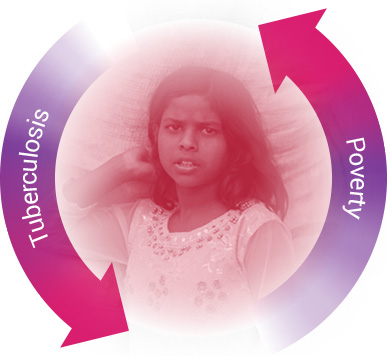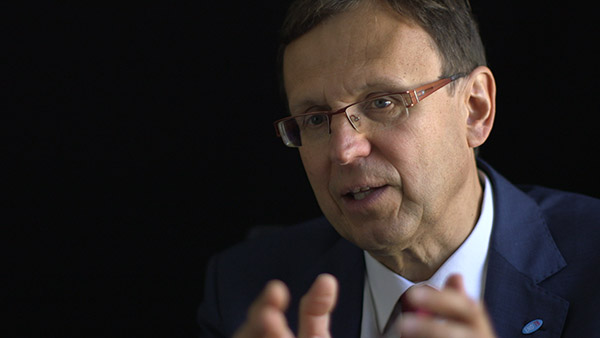The Cycle of Poverty
Though a global disease, TB’s impact is felt disproportionately by the poor. The transmission of TB within families and communities often further entrenches a cycle of poverty, in which the sick are made poor, and the poor are at increased risk of sickness. Studies show the economic impact TB has on families, even if they don’t pay for treatment. Those who become sick are often unable to work consistently and spend more time in their homes, which are often badly ventilated and help spread the disease among family members. As the disease passes from adult to child, the poverty cycle tightens its inter-generational grip.

“TB needs to be our next liberation struggle, next to the fight against poverty.”
TB Robs the World of Wealth as well as Health
New and improved TB cures could help increase the productivity of entire regions and promote sustainable economies.
$1-3T
TB will rob the world's poorest countries of an estimated $1 to $3 trillion over the next 10 years.
80%
Studies have shown that patient costs associated with TB treatment can be upwards of 80% per capita income in some regions, even when the drugs themselves are free.
4-7%
The World Bank estimates that loss of productivity attributable to TB is 4 to 7 percent of some countries' GDP.
Return on Investment in New TB Drugs
Investing in the development of new TB drugs is not just a humanitarian imperative; it is sound economic policy as well. The development of new and improved TB treatments that reduce the global TB burden could help increase the productivity of entire regions and promote sustainable and self-determined economies, opening up new engines of innovation, trade, and industry.
Cost to Patients
Shorter TB treatment regimens will reduce the out-of-pocket expenses incurred by both patients and their family members, who often act as the patients’ guardians. In addition, shorter TB regimens may allow an earlier return to productive activities for patients and their families.
These conclusions come from an international alliance of researchers, led by the Liverpool School of Tropical Medicine (LSTM), who carried out a comparative study in Tanzania and Bangladesh looking at the out-of-pocket costs incurred by TB patients in both countries. These patients were taking the currently recommended six month TB treatment regimen. The outcomes of this study have been published in the International Journal of Tuberculosis and Lung Disease.



